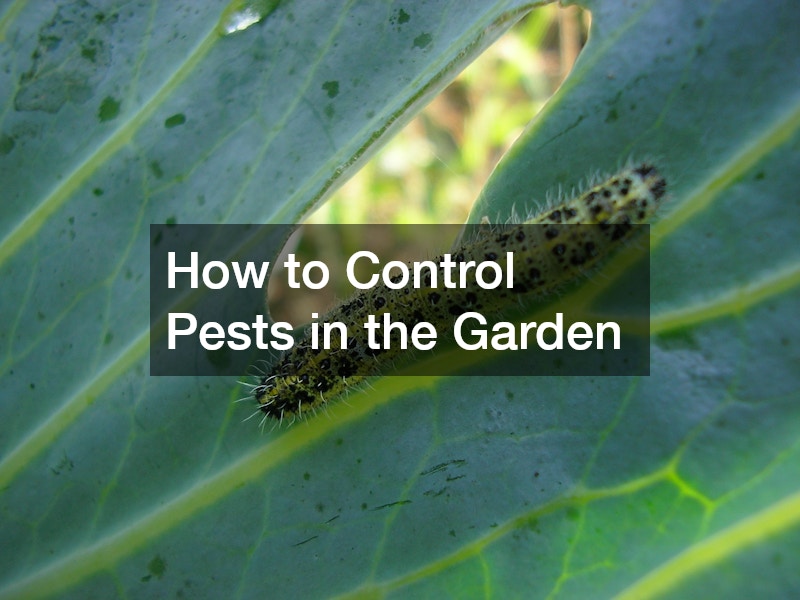Gardening can be a rewarding hobby, but it often comes with the challenge of managing pests. Unchecked, these pests can damage plants, reduce yields, and even wipe out entire crops. Fortunately, there are several effective strategies you can use to control pests in your garden, ensuring that your plants thrive.
1. Regular Monitoring
The first step in pest control is regular monitoring. By inspecting your garden frequently, you can catch pest problems early before they become severe.
Look for signs such as holes in leaves, yellowing, or stunted growth. Identifying the type of pest is crucial because different pests require different control methods. Early detection allows you to take quick action, often preventing significant damage.
2. Encourage Beneficial Insects
Not all insects are harmful; in fact, many are beneficial and can help keep pest populations in check. Ladybugs, for example, feed on aphids, while lacewings eat a variety of soft-bodied insects. You can attract these beneficial insects by planting flowers like marigolds, dill, and fennel, which provide nectar and pollen. Creating a welcoming environment for these helpful bugs can reduce your need for chemical pest control.
3. Use Natural Repellents
Natural repellents can be an effective way to deter pests without harming your plants or the environment. For instance, garlic and chili pepper sprays are known to repel a variety of insects. Simply blend garlic or chili peppers with water, strain the mixture, and spray it on your plants. Neem oil is another popular option that disrupts the life cycle of many pests, making it harder for them to reproduce.
4. Implement Crop Rotation
Crop rotation is a tried-and-true method of pest control that involves changing the types of plants you grow in a particular area each season. This practice confuses pests and interrupts their life cycles since many pests are plant-specific. By rotating your crops, you reduce the likelihood of pests becoming established in your garden.
5. Maintain Garden Cleanliness
A clean garden is less attractive to pests. Remove dead plants, weeds, and fallen fruit, as these can harbor pests and provide them with a place to breed. Additionally, use mulch to cover the soil, which can prevent pests like slugs and snails from reaching your plants. Regularly clearing debris and maintaining a tidy garden reduces the likelihood of pest infestations.
6. Consider Organic Pesticides
If you find that natural methods aren’t enough, consider using organic pesticides as a last resort. Organic pesticides, such as those made from pyrethrin or insecticidal soap, are less harmful to the environment and beneficial insects than synthetic options. Always follow the instructions on the label and apply them carefully to minimize any negative impact.
Watch the video above to learn more about how you can control pests in your garden. If you need help to prevent pest control, call a local team today!.

